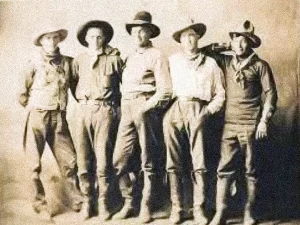David said: Someday Steve is going to get his shit together. I just know it.
Steve Jobs was a friend of my late husband, David Karpoff. David was a tech nerd of the first variety—brilliant, quiet, and with the kind of mind that made you always wonder what he was thinking about and how far those thoughts were going to take him. If he hadn’t died at 27 from a rare form of lymphoma in 1988, I think he would have gone very far indeed.
I remember David showing me a Lisa computer and how I just immediately liked it. It felt … I don’t know… friendly. When I said that to David, he smiled. Little did I know at the time how absolutely intentional my having that response had been engineered by Jobs, and what a grand accomplishment that it was my first impression of a computer.
So, at the time in the ’80s that David knew Steve, he would tell me about him. It was in passing, as a remarkable guy, and how great his ideas were and—well, there is no nice way to say this, but how badly he was failing at the time. Steve had co-founded Apple when he was 21, made amazing products and millions of dollars, and by the time he was 30 he was fired from his own company.
David was always impressed with what he called Jobs’ backbone and self-determination. “It was like he felt he was right and he knew he was right and he was going to stick to his vision, no matter what it cost him. He had a belief in design elegance and emotional responses to technology. People think he is kind of nutty.”
Even then, he was pushing the world up the side of the mountain like Sisyphus. Punished in the Hades of Apple he called Siberia, an adjunct building that housed only him, his secretary, and a security guard. Imagine a clock ticking in silence while in the next building your ideas were being altered and sold without your knowledge. It seemed he would be condemned to an everlasting punishment.
On Friday, Sept. 13, 1985, Jobs sent a copy of his resignation letter to Newsweek, waving his hands in the air like he just didn’t care. David knew he was not giving an inch. “Steve was going to make his shame public, because it didn’t feel like shame to him. He knew he was right and he was going to prove it, somehow.” Steve Jobs was pissed.
Who wouldn’t be? Imagine yourself as a genius of the magnitude of Jobs, whose ideas were denigrated and then stolen (as they always are by lesser intellects), unappreciated and sacrificed at the altar of the stock price. It’s amazing to me that he didn’t rage even more.
It was at this time that I knew of Steve, through the words of my husband. In his torment and failure. But David believed in him through it all. And I think he would not have been surprised at his eventual triumph.
The lesson for me was obvious and it has become ever clearer: If you are really an innovator at any level, be prepared for every manner of storm coming your way. If you are not willing to risk it all, to be brave enough to resist mediocrity, your idea will be lost. For it is not only the idea, but the nerve to fight for it, that make it real. An idea is a thought first and becomes a thing only with persistence and courage.
Thanks, Steve.





